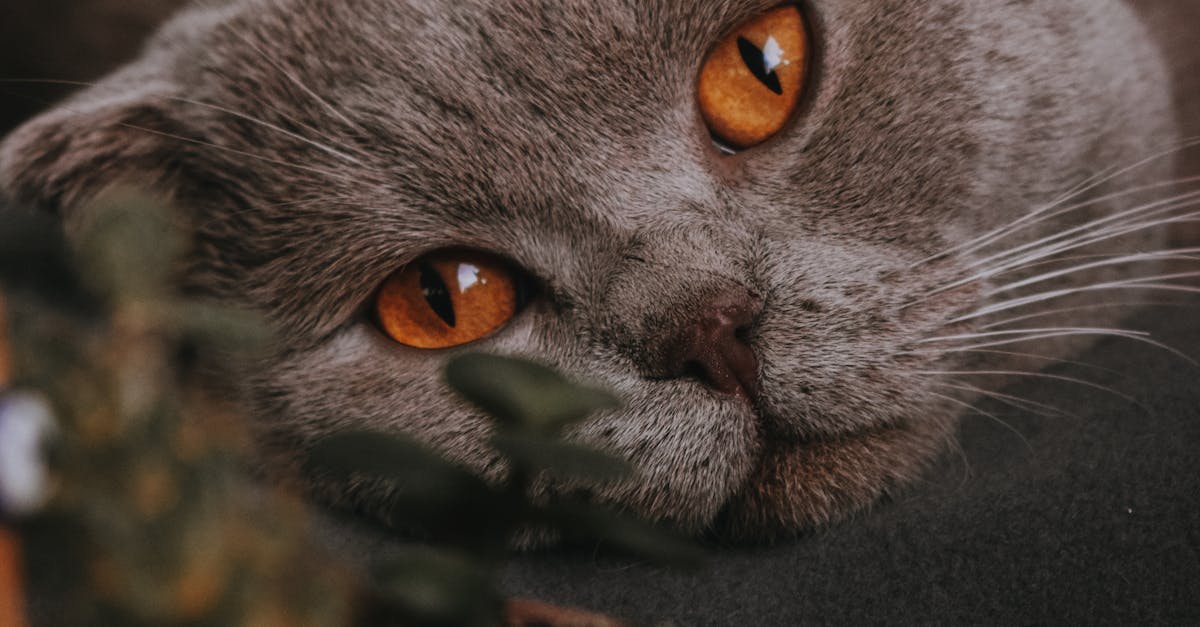If you’ve noticed a strange sore or lesion on your cat’s lip, you’re not alone. Many cat owners are puzzled and alarmed when they see these types of sores, commonly referred to as rodent ulcers. Despite the name, rodent ulcers have nothing to do with rodents and are a relatively common condition in cats. Understanding what causes them, how to manage them, and when to seek veterinary help can make all the difference for your furry friend.
⚠️ What to Watch For
Rodent ulcers, also known as eosinophilic ulcers, are part of a broader condition called feline eosinophilic granuloma complex (EGC). These ulcers typically appear on the upper lip but can also affect other areas of the face or mouth. Here are some key signs to look out for:
- Swollen or raised sores on the upper lip
- Red, raw, or ulcerated skin
- Occasional bleeding or scabbing
- Discomfort or irritation (though some cats may not show pain)
- Difficulty eating or grooming if the ulcers are severe
While rodent ulcers often look alarming, they aren’t contagious to other pets or humans. However, they can be a sign of an underlying issue that needs attention.
🔍 Possible Causes
The exact cause of rodent ulcers isn’t always clear, but several factors can contribute to their development. These include:
- Allergies: Allergic reactions to food, fleas, or environmental irritants are a common trigger.
- Immune system dysfunction: Some cats may develop these sores due to an overactive immune response.
- Stress: Stressful situations can sometimes exacerbate underlying conditions, leading to flare-ups.
- Bacterial or viral infections: Secondary infections can worsen the appearance of ulcers.
According to VCA Animal Hospitals, flea allergies are one of the most common culprits (source). Even indoor-only cats can be affected if fleas are brought into the home.
✅ What You Can Do at Home
If you suspect your cat has a rodent ulcer, there are a few steps you can take at home to help them feel more comfortable while you seek veterinary advice:
- Check for fleas: Flea control is essential. Use a vet-approved flea treatment for all pets in your household.
- Monitor their diet: If food allergies are suspected, consider switching to a hypoallergenic or limited-ingredient diet under your vet’s guidance.
- Reduce stress: Provide a calm and predictable environment for your cat, with plenty of hiding spots and enrichment activities.
- Keep the area clean: Gently wipe the affected area with a damp, soft cloth to remove debris, but avoid using harsh products.
While these measures can help manage symptoms, they’re not a substitute for veterinary care. A proper diagnosis is essential to address the root cause of the ulcers.
💡 When to Call a Vet
Rodent ulcers can vary in severity, and some cases require medical intervention. You should contact your veterinarian if:
- The ulcer is large, worsening, or not healing after a few days
- Your cat shows signs of pain, such as pawing at their face or refusing to eat
- There’s excessive swelling, bleeding, or discharge
- Your cat has other symptoms, like itching, vomiting, or lethargy
Your vet may recommend diagnostic tests, such as a biopsy or allergy testing, to determine the underlying cause. Treatment often includes anti-inflammatory medications, antibiotics, or allergy management strategies. In some cases, long-term management may be necessary to prevent recurrence.
FAQs
Q: Are rodent ulcers in cats dangerous?
A: While rodent ulcers are not life-threatening, they can cause discomfort and may indicate an underlying issue like allergies or an infection. Prompt treatment can improve your cat’s quality of life.
Q: Can rodent ulcers heal on their own?
A: Mild cases may resolve without intervention, but many require veterinary treatment to fully heal and prevent recurrence. It’s best to consult a vet if you notice any sores on your cat.
Q: How are rodent ulcers treated?
A: Treatment depends on the cause. Options may include anti-inflammatory medications, antibiotics, flea control, or dietary changes. Your vet will create a plan tailored to your cat’s needs.
Book a $49 online vet consultation at https://www.dialavet.com for fast, expert advice.























